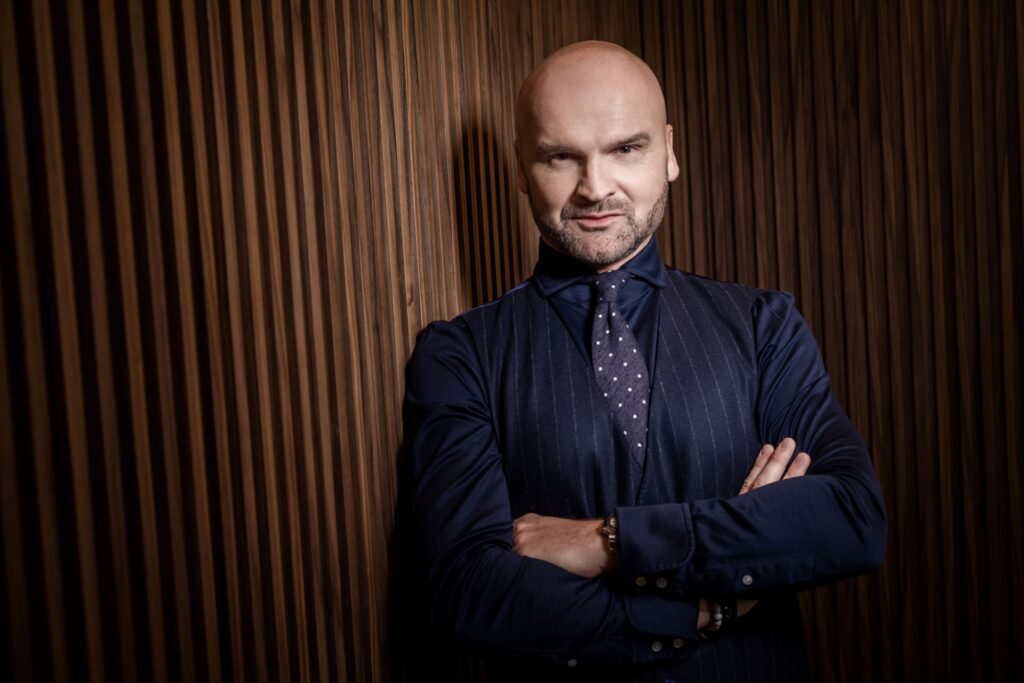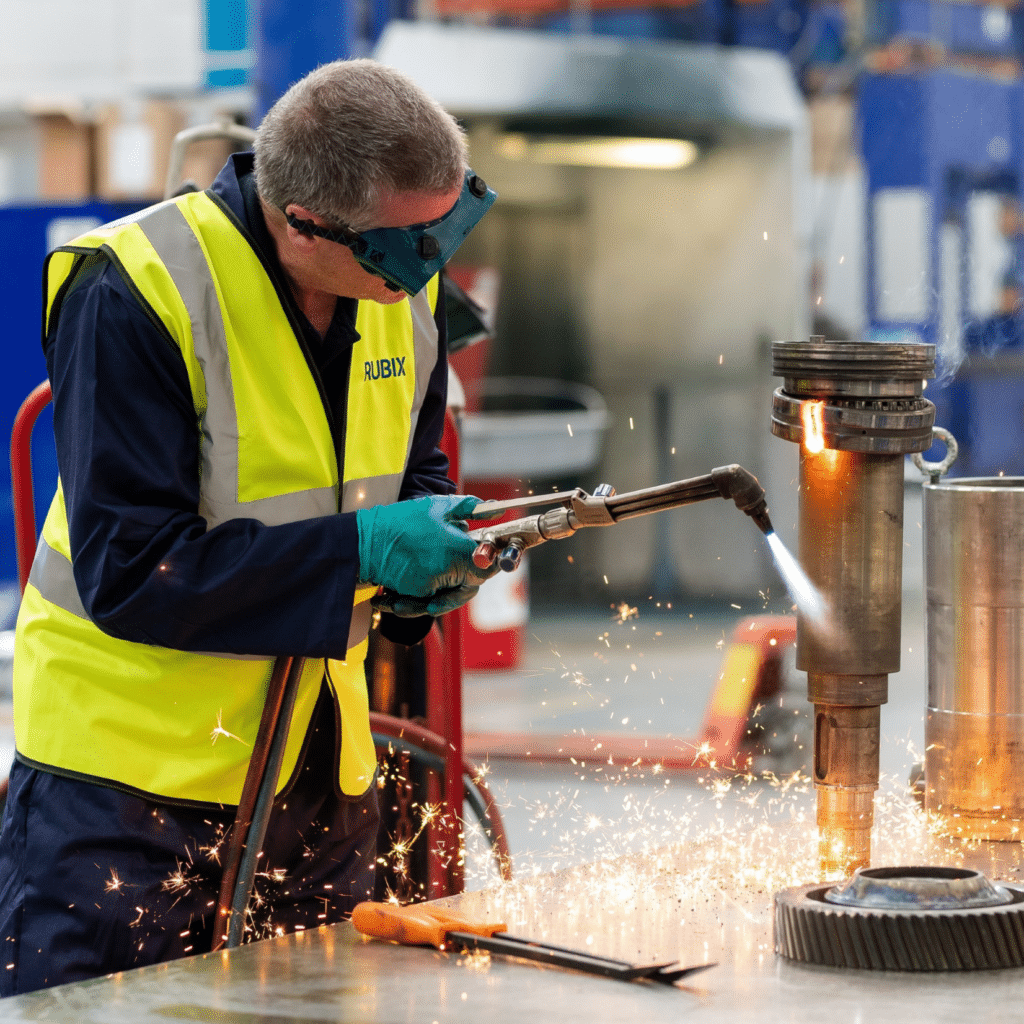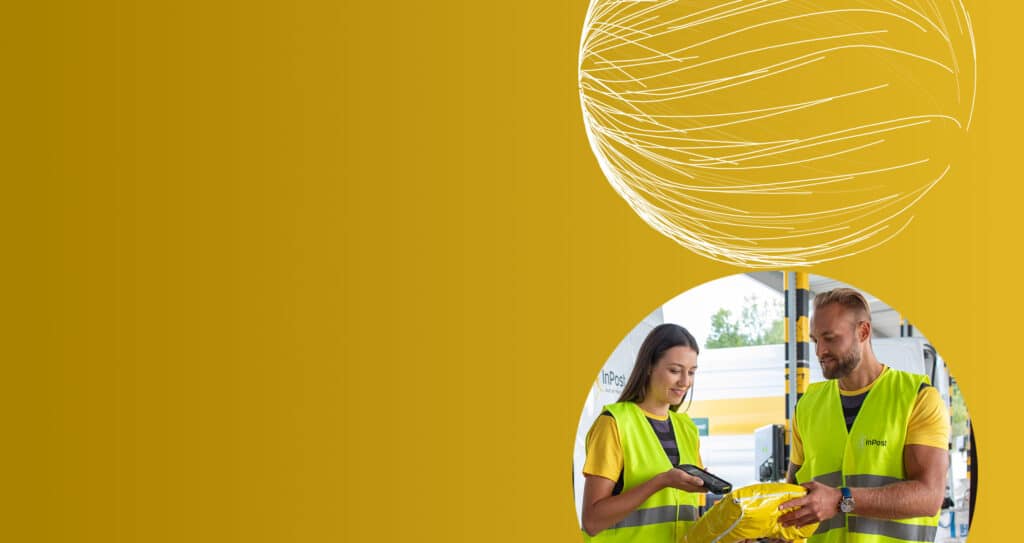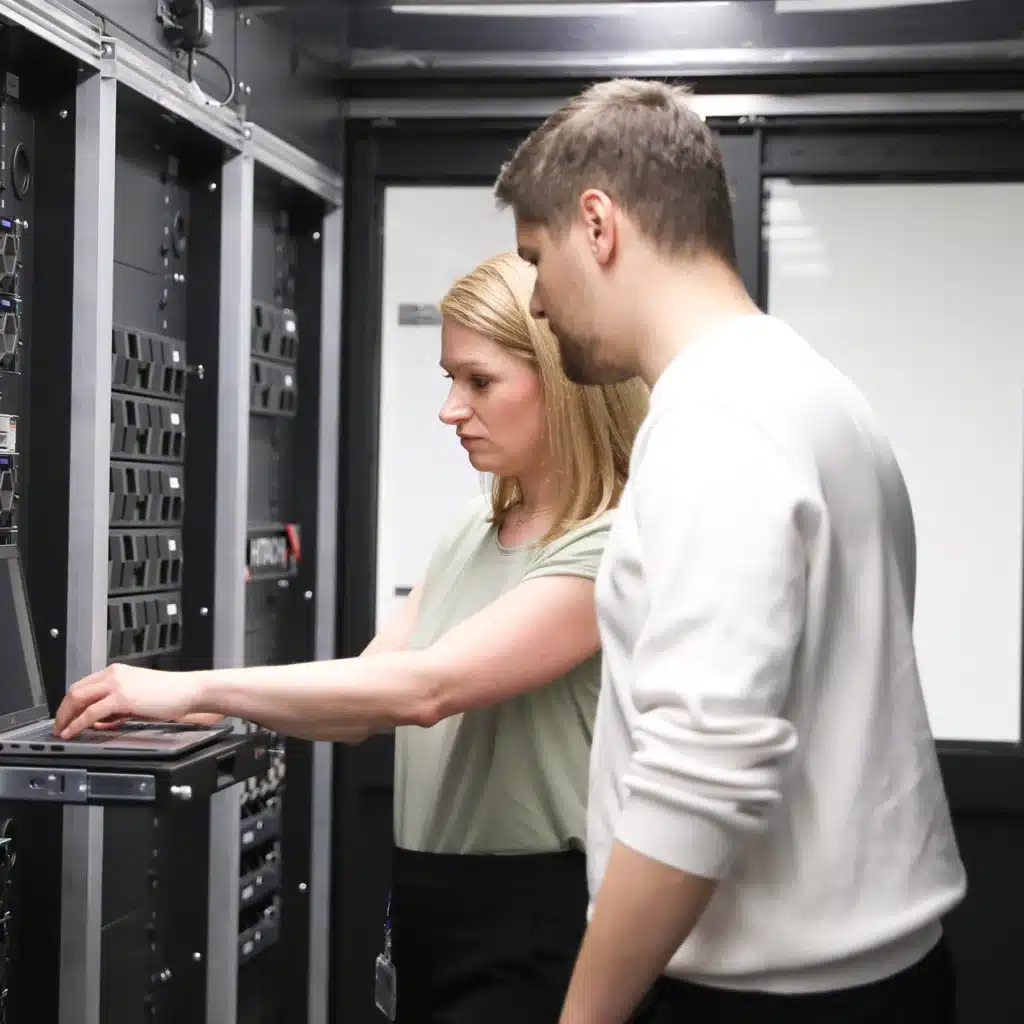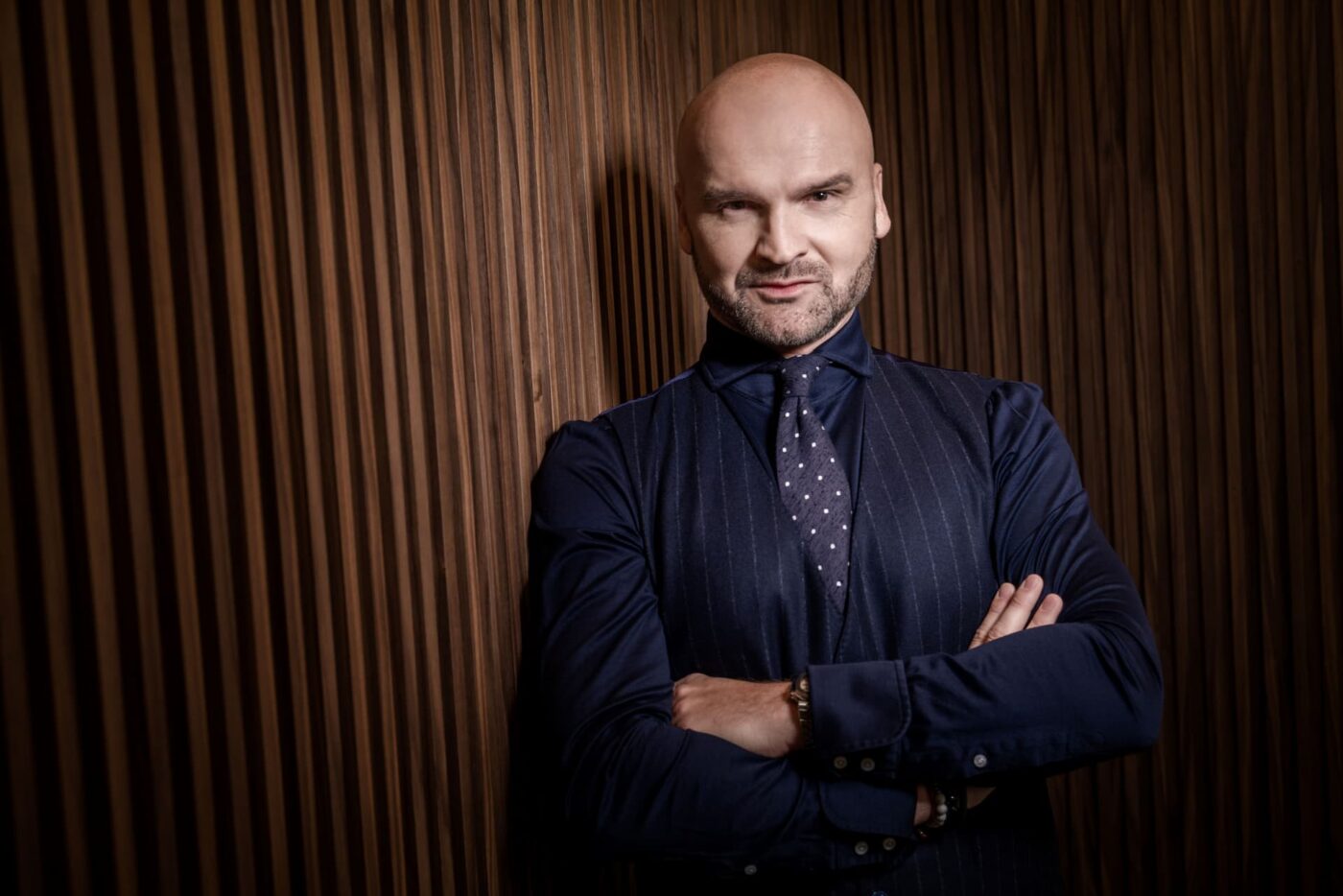
Can you think of another Polish business that has achieved this kind of success internationally?” asks InPost founder, Rafał Brzoska. “We are doing something special. We’re already the third or fourth logistics company in the nine markets in Europe where we are present – and I want to be number one.”
There is no bravado in this statement, only vindication. Brzoska, 47, has fought hard to get his parcel locker network to where it is today. Set up in 2006, InPost’s early years saw Brzoska battle naysayers and push against a state-owned monopoly, all while dealing with market volatility. “It was tough,” he says.
It is 9am in Krakow, Poland, when this interview takes place, and Brzoska looks very much at home dialling into a virtual meeting room from InPost headquarters. Calm and eloquent, wearing a pinstripe shirt with Windsor collar, silk tie and waistcoat, he explains that he is now a Zoom veteran, after spending 12 hours a day on the platform during the pandemic. “I spent hundreds of hours on there, educating investors,” he says. “I lost my voice. It was relentless.”
‘Failure is an orphan’
Brzoska had a crash course in business failure when he was just 15. His parents gave him their life savings to speculate on the Warsaw Stock Exchange. When the market slumped a few weeks later, he lost 90% of their money. “Success has many fathers, but failure is an orphan,” he says. “I learned that very young.” He promised his parents he would make it all back – and he did.
This brush with financial ruin was a valuable lesson. “I have experienced many failures in my life, and you learn from every one. When I was young, I was stupid. I thought that once you became successful you could relax. You must never relax.”
His journey into the world of logistics began in 1999. Brzoska was a third-year student at Krakow’s University of Economics when he created his first business, Integer, which distributed leaflets on behalf of local companies. “We were completely unsuccessful in the beginning,” he says. “I started the company with €5,000 and pretty soon I was running out of money.”
Nevertheless, the fledgling entrepreneur ploughed on with the grit and self-belief that would become his hallmark. “After two years, I graduated and we were the number one in Poland, delivering a billion leaflets a year.”
At this point, a venture capital fund offered the graduate €12 million for the business. Brzoska refused. “I wasn’t ready to retire,” he laughs. He already had his sights on the next opportunity: creating a rival to the state-owned Polish postal service.
The backup plan
In 2007, Brzoska floated his leaflet business on the Warsaw Stock Exchange to raise the capital needed for further growth. The listing went well, but the next few years would present challenges. “It was tough to compete with the state,” he says. “We managed to win a third of the Polish market but we were losing money. The state-owned postal service was aggressive on pricing.” The battle was exhausting. A tussle over who would deliver mail for the Polish courts dragged on for years. “We broke the monopoly and became the fastest-growing postal organization in Europe,” he says, “but I saw that the letter business was dying.”
Luckily, Brzoska had created a ‘plan B’ in 2009. This was the launch of the first Paczkomat® automated parcel machine in Poland. “The e-commerce industry was growing fast, but the Polish courier market was already dominated by global players. I knew that if I wanted to compete, I needed a new model.”
The plan was to give the humble PO box a makeover for the modern e-commerce ecosystem. Brzoska spent €25 million to install a network of self-service lockers within easy reach of people’s homes so they could collect and return their online purchases.
“After two years, we had a few hundred lockers,” he says. “But we were making just €500 a month. You can imagine the scene at our board meetings. Everyone was pushing me to shut that business down.”
But Brzoska resisted investor pressure. “My gut feeling was that, although we were too early for the market, the logistics industry was changing.”
It took five years of continuous investment, building out the locker network, and converting merchants, before the venture gained traction. “When we reached breakeven, we knew it was time to get out of the postal business and focus on the lockers,” Brzoska says. “This is where Advent came in.”
A partner who saw the scale of the opportunity
Brzoska started looking for an investor in 2015. At this point, the business was €65 million in debt and the listed company was still subject to the scrutiny of the public market. “I needed a strong financial partner that understood the complexities of delisting and getting out of our postal business,” says Brzoska.
For a year and a half, he spent three days a week travelling to London, Frankfurt and New York, meeting investors. “I met some funds where there was no chemistry,” says Brzoska. “They saw the deal as a pure business opportunity but didn’t believe we could win the market. I didn’t continue my discussions with those funds.”
Advent acted fast when given the opportunity to join the process. The team rapidly conducted an in-depth market analysis. Merchants reported they were satisfied with InPost’s service but that the network wasn’t far-reaching enough, while consumers said they wished there were more lockers nearby.
Brzoska was looking for more than money; he wanted a partner. When Advent shared the results of the research, the team proved themselves an asset before they had invested a single cent. “I needed support to navigate the many challenges we faced,” he says. “Advent had the experience, the right approach, and the track record. Advent believed in me as an entrepreneur.”
The deal was done in 2017. As well as expansion capital and operational expertise, Advent brought a valuable outsider’s perspective. “We had lockers that were underperforming in other markets,” explains Brzoska. “We refocused on Poland where the only barrier to growth was a lack of machines. That was how we built a flywheel effect.” Once the model was successfully proven at home, InPost also expanded in the UK, where it already had a presence.
From grind to growth
Brzoska has since created a culture that rewards innovation and prioritises a “fail fast” approach. “We try new things, and if it doesn’t work, we quickly pivot or shut that service down.”
InPost may be an old-timer in tech years but it still acts like a start-up. This culture isn’t for everyone: “Only the strongest team members make it through the first three months, but, after that, they stay forever.”
While Advent is always on hand to provide support, Brzoska feels he is trusted to make the right calls at the company he founded. “This is how Advent helped me the most. They let me run the company without interference. When I had a gut feeling about something, they didn’t try and tell me I was wrong. That is a massive thing for a founder.
“Many funds try and steer their portfolio companies, but I felt there was complete trust with Advent.”
When the pandemic arrived, Brzoska’s gut told him it was time to return to the stock market. The company experienced two years’ worth of adoption in the first few months of lockdown.
“When Covid arrived, we experienced an immense acceleration,” he says. “That’s when we began the hard work to get ready for IPO.”
After a year of preparation, in January 2021, InPost’s flotation on the Amsterdam exchange raised $3.9 billion – the biggest ever European tech IPO and the sixth largest in the world. “It was an immense success.”
A no-brainer for merchants
Brzoska didn’t see the listing as an endgame, however. It was simply another milestone on the journey. The smart locker market is a fast-growth, competitive sector with plenty to play for. According to its latest filing, InPost’s parcel volumes in the third quarter of 2023 were up 18% on the previous year, while revenues were up 22%.
Brzoska believes InPost is only scratching the surface. In 2021, the global smart locker market was valued at $690 million. It is forecast to be worth more than $2 billion by 2030.
“We’re only 20% of the way there,” he says. “I want to create a pan-European network of automated parcel machines across several markets, with partnerships in all the countries where we don’t have our own machines. You’ll be able to send a parcel in Lisbon and get it picked up in Athens – that’s the dream.”
Brzoska is optimistic that the push for net zero will continue to drive customer acquisition. Parcel lockers reduce emissions from last-mile delivery fleets. An analysis of InPost’s Polish network found that a single machine saves as much carbon dioxide in one day as twelve 100-year-old trees in a whole year. InPost now runs close to 40,000 machines and it aims to be completely carbon neutral by 2040.
“I’m nowhere near satisfied,” he says. “I won’t rest until we have built a Polish Spotify, a brand that is known by millions of consumers worldwide. That’s my ambition and that’s my goal.”
Rebecca Burn-Callander is a freelance business journalist. Former enterprise editor of The Daily Telegraph and Sunday Telegraph, she now hosts the award-winning podcast Sound Advice: Entrepreneurs Unfiltered. She is also the author of the Daily Telegraph Guide to Investing.
